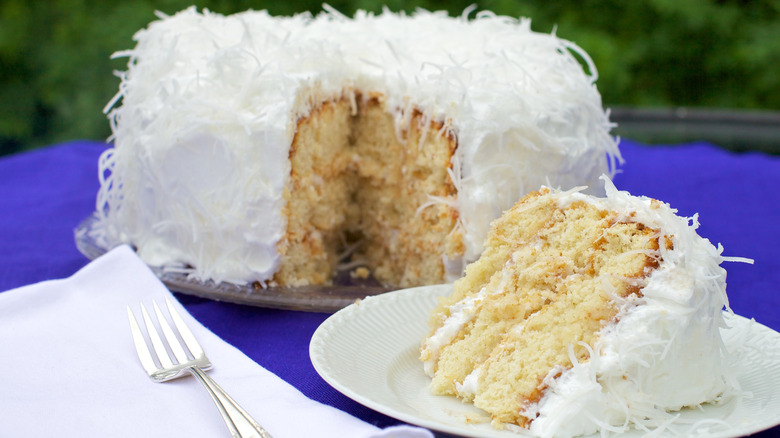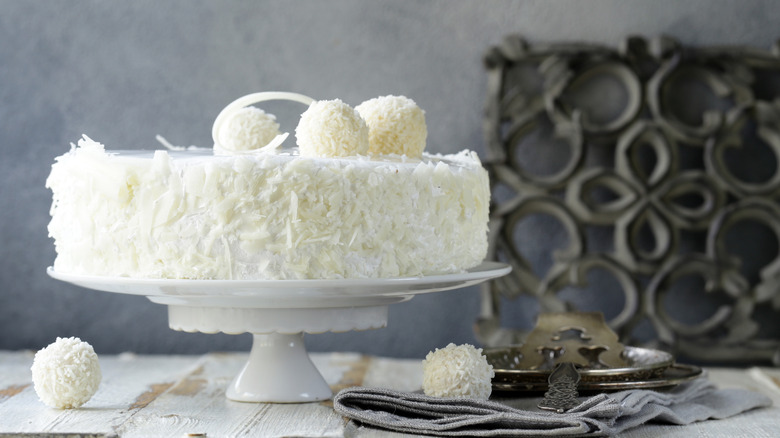The History Of Coconut Cake Is A Legacy Of Black Cooking
A towering white layer cake filled with fluffy white frosting and covered in a blanket of flaky fresh coconut holds a significant place in American Southern cooking. It evokes memories of grandparents, cheery holidays, and loving family tables for many. The recipe's origins can be traced back to the antebellum era, a time before the American Civil War when coconuts were a rare treat. The laborious process of cracking and grating the coconut meat was both physically demanding and time-consuming work that was mostly done by enslaved women.
Coconut cakes made their way into many early recipe collections, some appearing by 1830. In 1881, Alabama native Abby Fisher, born enslaved and who then lived in San Francisco, published one of the oldest known cookbooks by an African American author, "What Mrs. Fisher Knows about Old Southern Cooking." Fisher recounts a coconut pie in the collection that required the roasting, cracking, and grating of a whole "cocoanut," creaming it with butter and lard, beating egg yolks, sugar, and more butter, whipping egg whites, as well as grating lemons for the delicacy. Malinda Russell was a free woman of color who published an early cocoanut (sic) cake recipe in her 1866 "A Domestic Cookbook." Cakes of this era relied on the lift of beaten egg whites — baking soda and powder were not commercially available. Coconut was not an easy treat to manage, and layered cakes were likewise a huge effort.
Coconut cake has lifted the Black community for decades
In 1904, author Minnie Fox's "The Bluegrass Cookbook" is notable for giving credit to Black cooks who shaped Southern foodways. This book includes a recipe (Mountain Cake) for a modern fluffy, frosted, and coconut-drenched layered marvel like the one legendary Black cook and author Edna Lewis described in 1976 in "The Taste of Country Cooking." The book recounts the culinary practices of the small Virginia town founded by freed slaves where Lewis was raised. Lewis says in the recipe's headnote that coconut cake "was one of the most famous desserts we baked."
Fancy cakes were baked for celebrations and church dinners, and they also helped fund civil rights organizing. Black women organized The Club From Nowhere to sell food, including pies and cakes, to support the 1955 Montgomery, Alabama bus boycott, which was triggered by Rosa Parks' refusal to relinquish her seat on the bus. Bakers like Savannah, Georgia's Cheryl Day keep the tradition alive with family recipes that were treasured during the post-WWII migration of Black families across the U.S. — a way to connect through the generations and bring memories of love and union to a new community.

